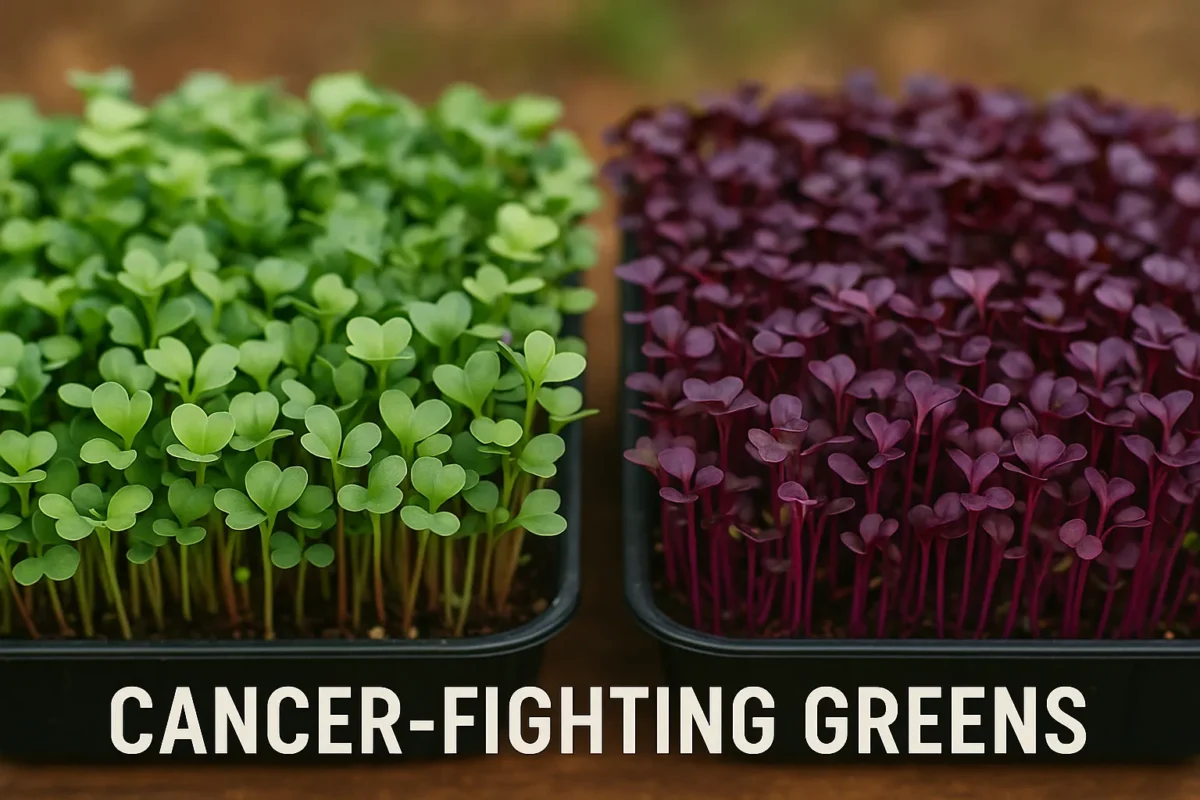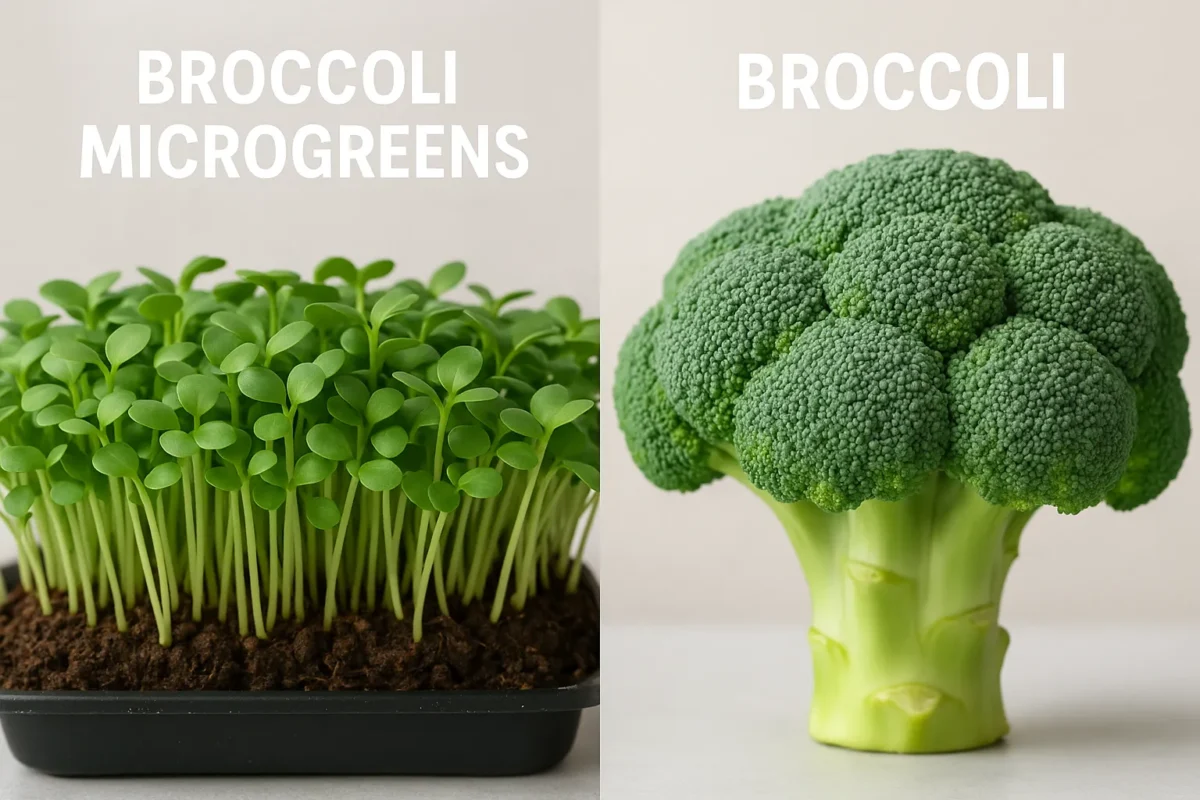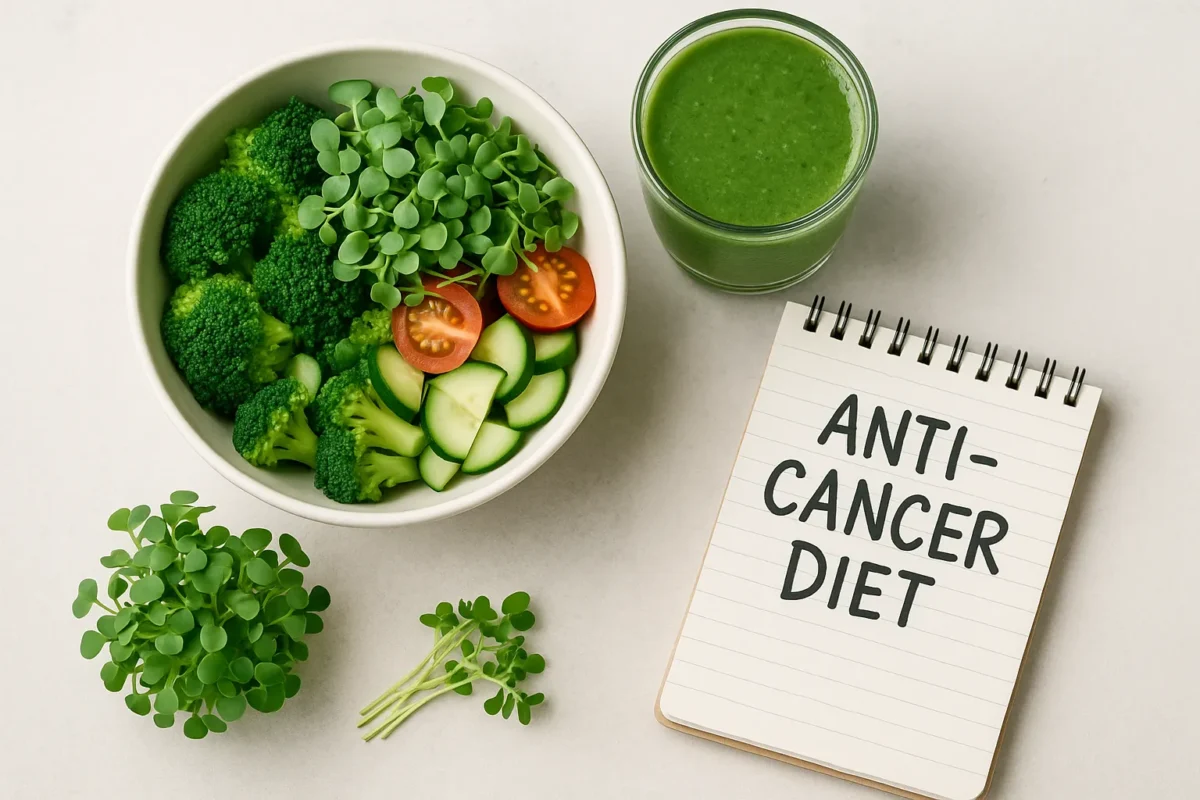
Introduction
Cancer remains one of the leading causes of death in the UK and globally. While no single food can prevent cancer, research increasingly shows that certain dietary choices can reduce the risk of developing it. Among these, cruciferous vegetables stand out — and their younger, more nutrient-dense versions are gaining attention. The connection between cruciferous microgreens and cancer is being explored for their potential role as powerful allies in cancer prevention.
This article explores the science behind how cruciferous microgreens such as broccoli, cabbage, and mustard may help support cancer prevention and why incorporating them into your daily diet could be a small change with potentially big benefits.
What Are Cruciferous Microgreens?
Cruciferous microgreens are the tender, early-growth seedlings of vegetables from the Brassicaceae family. This includes well-known vegetables like:
- Broccoli
- Cauliflower
- Red cabbage
- Kale
- Mustard greens
These microgreens are typically harvested 7–21 days after germination, just after the first set of true leaves appear. Despite their size, they’re incredibly rich in vitamins, minerals, antioxidants, and phytochemicals.
The Science Behind Cruciferous Vegetables and Cancer
The connection between cruciferous microgreens and cancer stems from the well-established benefits of cruciferous vegetables in cancer prevention. Their protective effects are primarily linked to the presence of glucosinolates—natural compounds that break down into biologically active substances such as:
- Sulforaphane
- Indole-3-carbinol
- Isothiocyanates
These compounds have been shown in studies to possess anti-cancer, anti-inflammatory, and detoxifying properties.
Sulforaphane – A Star Compound
One of the most compelling links between cruciferous microgreens and cancer involves sulforaphane, a powerful compound especially abundant in broccoli microgreens. Sulforaphane has been widely studied for its potential ability to:
- Boost the body’s detoxification enzymes
- Protect DNA from mutations
- Induce cancer cell death (apoptosis)
- Inhibit tumour growth
A 2024 study titled “Potential mechanisms of cancer prevention and treatment by sulforaphane, a natural small molecule compound of plant-derived” published in Molecular Medicine highlights sulforaphane’s broad anticancer potential. The study reviews how sulforaphane can modulate multiple cellular processes, including inflammation, oxidative stress, and carcinogen metabolism. It points to the compound’s ability to induce apoptosis, inhibit cancer cell proliferation, and enhance antioxidant defences (Molecular Medicine, 2024).
How Microgreens Compare to Mature Vegetables
You might be wondering: why not just eat fully grown broccoli or kale?
Research from the USDA and University of Maryland found that microgreens often contain up to 40 times more vital nutrients than their mature versions (Xiao et al., 2012).
For example:
- Broccoli microgreens have significantly higher levels of sulforaphane than mature broccoli.
- Red cabbage microgreens deliver concentrated doses of anthocyanins and vitamin C.

What the Research Says
Numerous peer-reviewed studies support the connection between cruciferous microgreens and cancer, highlighting their potential anti-cancer effects and the bioactive compounds responsible.
Broccoli Microgreens and Breast Cancer
A 2021 study in Journal of Agricultural and Food Chemistry found that mice fed broccoli microgreens had lower levels of breast tumour growth and inflammation markers (Yu et al., 2021).
Red Cabbage and Colon Cancer Risk
Researchers discovered that red cabbage microgreens modulated gut microbiota in ways that may reduce colon cancer risk, due to their high polyphenol and glucosinolate content (Chen et al., 2020).
General Evidence from Cruciferous Vegetables
A meta-analysis in the Annals of Oncology concluded that higher consumption of cruciferous vegetables is associated with a significantly lower risk of various cancers, including stomach, lung, and colorectal cancers (Ann Oncol, 2013).
Incorporating Cruciferous Microgreens Into Your Diet
The best part? They’re easy to grow and eat. As more people learn about the link between cruciferous microgreens and cancer, incorporating them into your daily diet is a simple way to boost your nutritional intake. Here’s how you can get started:
- Sprinkle on salads or soups
- Add to sandwiches or wraps
- Blend into smoothies or green juices
- Mix into omelettes or rice bowls

Can They Replace Other Cancer-Preventive Foods?
When it comes to cruciferous microgreens and cancer, it’s important to remember that they aren’t a cure or a substitute for a balanced diet. However, they are a highly efficient, compact source of cancer-fighting compounds. These microgreens work best as part of a wider anti-inflammatory, whole-food diet that supports overall health and disease prevention.
The NHS recommends at least five portions of fruit and vegetables per day (NHS Eat Well Guide). Microgreens are a convenient way to contribute to that target while offering dense nutritional benefits.
Final Thoughts
When exploring the link between cruciferous microgreens and cancer, it’s clear that while no single food can prevent the disease, these tiny greens offer one of the most potent natural defences you can add to your plate. Backed by robust scientific evidence, they punch well above their weight in the world of nutrition.
Whether you’re looking to take proactive steps for your long-term health or simply enjoy a peppery, crunchy burst of flavour, microgreens like broccoli and red cabbage may be a delicious step in the right direction.
Disclaimer: This article is intended for informational purposes only and should not be used as a substitute for professional medical advice.
Sources:
Want to learn more about microgreens and their impact on health? Read our full guide on the Antioxidant Power of Microgreens →
